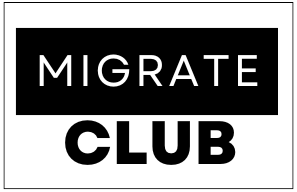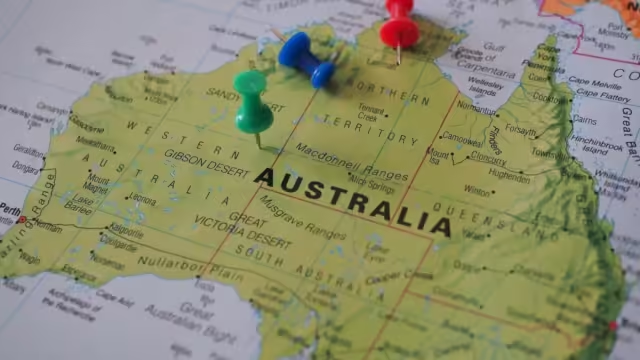Australia’s Fair Work Commission has raised the minimum wage to $915.90 per week, effective from July 1, 2024. This adjustment follows a 3.75% increase in the National Minimum Wage, bringing the hourly rate to $24.10.
This adjustment aims to improve compensation in response to economic changes and inflation, benefiting both local workers and international work visa applicants. The annual wage review ensures fair pay for Australia’s lowest-paid workers, setting the new weekly minimum at $915.90. These updated rates apply universally from the first full pay period on or after July 1, 2024, establishing a baseline pay rate under the Fair Work Act 2009.
Implications for Employers
For employers, adhering to these wage standards enhances their ability to attract and sponsor skilled overseas workers. This change is particularly important for occupations covered by Modern Awards, which set industry-specific minimum pay rates and conditions. Ensuring compliance with these updated wage requirements is essential for employers navigating Australia’s visa sponsorship landscape. Stricter checks during visa processing will ensure adherence to Australian labour laws, supporting fair employment practices.
Impact on Workers in Australia
Workers in sectors such as retail, hospitality, cleaning, and social care will benefit the most from this increase. The Fair Work Commission’s decision reflects its commitment to addressing cost-of-living challenges and mitigating inflationary pressures. Annual reviews of minimum wage rates take into account various economic factors, including inflation and living costs. This year’s adjustment is intended to support low-income earners amid Australia’s economic landscape, reflecting ongoing efforts to maintain financial balance.
In July 2023, a 5.75% increase preceded concerns about inflation, which has since moderated to a two-year low of 3.4%. As inflation trends downward, the Reserve Bank of Australia expects further stabilization soon. Australia’s increase in the minimum wage benefits both domestic workers and international job seekers. By raising wage standards, Australia strengthens its appeal as a destination for skilled professionals, promoting a robust labor market and economic stability.
Related News: Nigeria’s Minimum Wage Struggle
In Nigeria, the Nigeria Labour Congress (NLC) and the Trade Union Congress (TUC) have been advocating for a significant increase in the minimum wage from N30,000 to N494,000. The unions argue that this raise is necessary for workers to sustain themselves amidst the country’s current economic conditions. The proposal is grounded in the belief that a substantial wage increase is essential for workers to cope with the rising cost of living and economic realities in Nigeria.
The federal government, however, has deemed the proposed increase unsustainable, projecting a potential cost of N9.5 trillion. Mohammed Idris, the Minister of Information and National Orientation, stated that paying N494,000 as a minimum wage would exceed the fiscal feasibility of the government. This stance reflects the government’s concerns about the financial implications of such a significant wage increase.
Nationwide Strike and Government Response
In response to the deadlock, the trade unions launched a nationwide strike on Monday, June 3, 2024, demanding a higher minimum wage and a rollback of recently increased electricity tariffs. The strike had a widespread impact, paralyzing government offices, airports, seaports, and other public facilities across the country. The unions’ actions underscored the urgency of addressing the wage issue and the dissatisfaction among workers with the current wage levels.
After intense negotiations later that evening, the federal government and the labor unions reached a temporary resolution. The government agreed to an interim minimum wage above N60,000, leading to a five-day suspension of the strike for further deliberations. This temporary resolution provided a window for further discussions and negotiations aimed at finalizing a mutually acceptable minimum wage agreement. The outcome of these negotiations will be crucial in determining the future wage landscape in Nigeria.
Broader Implications and Future Prospects
The situation in both Australia and Nigeria highlights the global challenges associated with minimum wage policies and the balancing act between fair compensation and economic sustainability. In Australia, the Fair Work Commission’s decision to increase the minimum wage reflects an effort to address economic shifts and inflation while maintaining fair employment practices. The annual review process ensures that the minimum wage keeps pace with economic changes, providing a safety net for the lowest-paid workers.
In contrast, Nigeria’s struggle to raise the minimum wage underscores the difficulties faced by developing economies in balancing workers’ needs with fiscal constraints. The proposed increase to N494,000 reflects the unions’ recognition of the need for a substantial wage adjustment to match the rising cost of living. However, the government’s concerns about the financial feasibility of such an increase highlight the complexities involved in implementing significant wage hikes.
Economic Context and Inflation Trends
The economic context in both countries plays a crucial role in shaping minimum wage policies. In Australia, the recent moderation of inflation to a two-year low of 3.4% has influenced the Fair Work Commission’s decision. The Reserve Bank of Australia’s expectations for further stabilization underscore the importance of aligning wage increases with broader economic trends. By raising the minimum wage, Australia aims to support low-income earners while maintaining economic stability.
In Nigeria, the economic realities are different. The country faces significant challenges related to inflation and cost of living. The unions’ call for a substantial wage increase reflects the need to address these challenges and provide workers with a living wage. However, the government’s concerns about the financial implications of such an increase highlight the delicate balance required to implement wage policies that are both fair and sustainable.
Conclusion
The adjustments to minimum wage policies in Australia and Nigeria reflect broader global trends and challenges associated with ensuring fair compensation for workers. In Australia, the Fair Work Commission’s decision to raise the minimum wage aims to address economic shifts and inflation, benefiting both local workers and international job seekers. This increase reinforces Australia’s appeal as a destination for skilled professionals, promoting a robust labor market and economic stability.
In Nigeria, the struggle to increase the minimum wage underscores the complexities faced by developing economies in balancing workers’ needs with fiscal constraints. The ongoing negotiations between the government and labor unions highlight the importance of finding a sustainable solution that addresses the economic realities of the country while ensuring fair compensation for workers.
As both countries navigate these challenges, the outcomes of their respective wage policies will have significant implications for workers, employers, and the broader economy. Ensuring fair compensation while maintaining economic sustainability remains a critical goal for policymakers worldwide, reflecting the ongoing efforts to balance the needs of workers with the realities of the global economy.

























